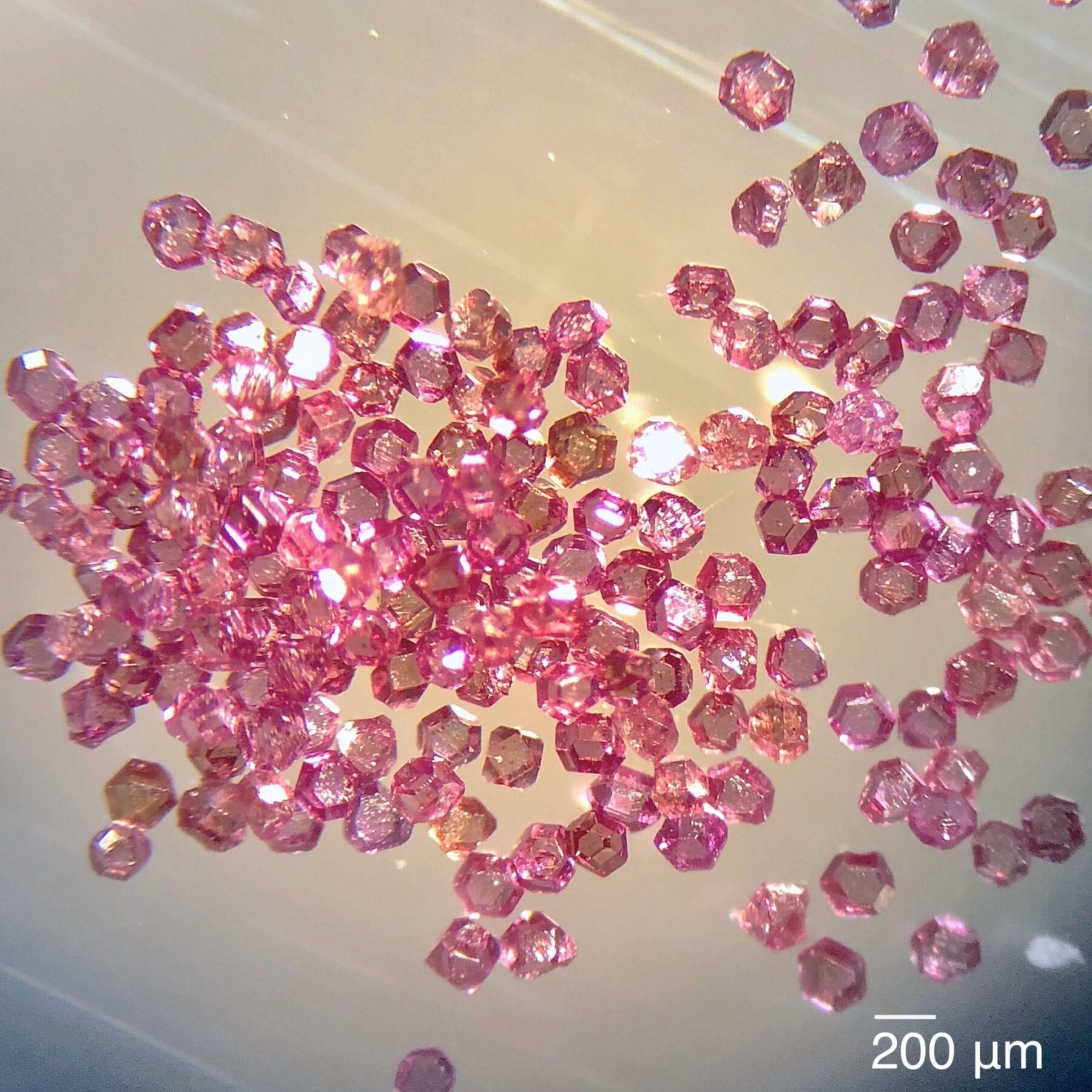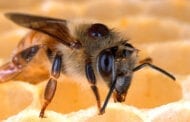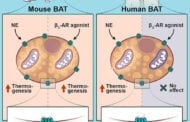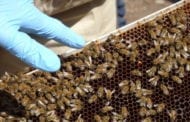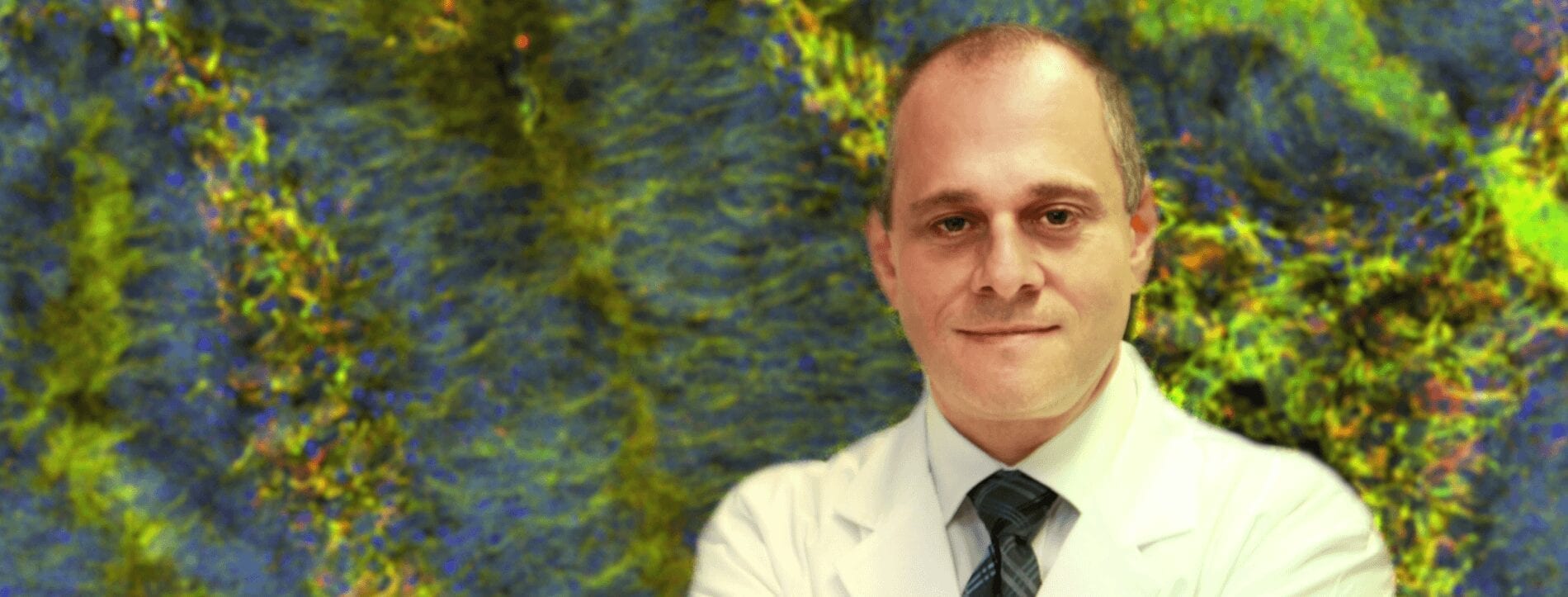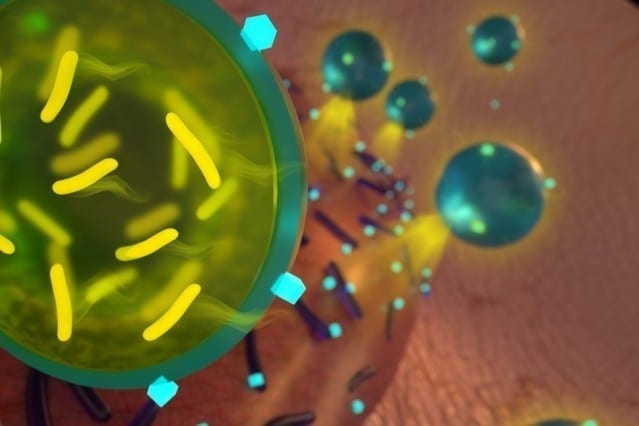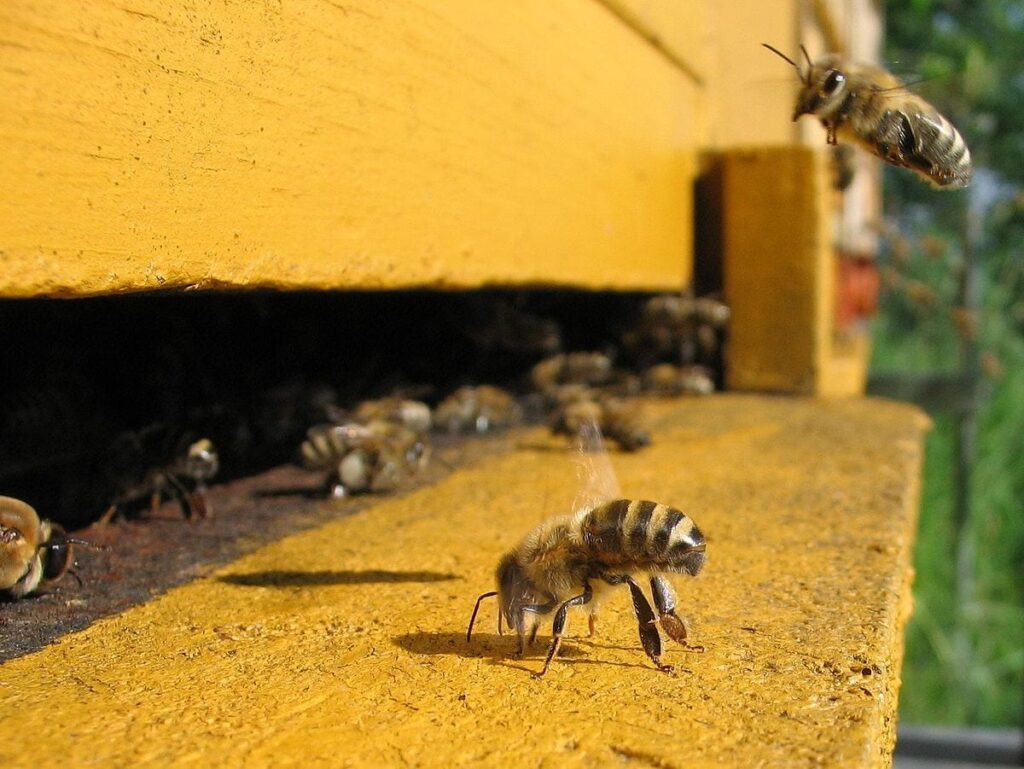
via Wikipedia
Adding probiotics to bees’ food helps make them more resistant to nosemosis, a fungal infection associated with colony collapse disorder that has been observed in Europe and North America over the past 20 years. Probiotics can decrease the mortality rate of this infection in bees by up to 40%, report researchers at Université Laval in the most recent edition of Frontiers in Ecology and Evolution.
Nosemosis, also called nosema disease, is caused by Nosema ceranae, a single-celled fungus of Asian origin that bees ingest with their food and that grows in the cells of their intestinal walls. “Under normal conditions, this fungus does not cause any problems for bees,” explains Nicolas Derome, professor at the Faculty of Science and Engineering at Université Laval and lead author in the study. “But when bees are subjected to stress, the microorganism can evade their immune system, causing an infection that can impair their ability to forage, hinder larval care, disturb the bees’ orientation, and increase mortality.”
Currently, nosemosis is treated with antibiotics, but their efficacy is declining as resistant strains of the fungus have emerged. “In addition, these products can kill beneficial bacteria in the intestinal microbiota of bees,” says Derome. “We had to find other solutions to combat this disease, and that’s what gave us the idea to test probiotics.”
The researchers measured the effectiveness of four probiotics on the prevention and treatment of nosemosis in bees placed in laboratory cages. Two of these probiotics, Bactocell and Levucell, are commercial products used in pork, chicken, shrimp, and salmonid farms. The other two probiotics are bacteria that researchers have isolated from the intestinal microbiota of healthy bees. The four probiotics were administered to the bees by mixing them with sugar syrups.
After two weeks of testing, the researchers found that the mortality rate of infected bees was 20 to 40% lower in those receiving probiotics than in the control group. The four probiotics tested showed similar efficacy. “Our results suggest that bacteria in the microbiota of bees can be as effective as commercial probiotics in treating nosemosis,” says Derome. “It’s important to note that given a very high infection rate, the probiotics tested did not reduce the number of fungi present in bees, but they allowed the bees to better tolerate them.”
The researcher and his team intend to take advantage of the protective properties of the probiotics present in bees’ microbiota to develop new ways of combating nosemosis. “The tests we’ve conducted in bee colonies suggest that a particular probiotic, called P. apium, is our best candidate. We have also identified other promising microbial strains and now hope to develop a combination of probiotics to combat nosemosis in bees. However, the real solution to this disease is to identify and correct the sources of stress disrupting the bees,” concludes the researcher.
Learn more: Probiotics protect bees from an infection associated with colony collapse disorder
The Latest on: Colony collapse disorder,
[google_news title=”” keyword=”colony collapse disorder” num_posts=”10″ blurb_length=”0″ show_thumb=”left”]
via Google News
The Latest on: Colony collapse disorder,
- IU Southeast Student Conference and Showcase celebrates student achievementon April 26, 2024 at 7:56 am
Student success and achievement was on display at the 20th IU Southeast Student Conference and Showcase. Students were nervous and excited as they prepared for oral and ...
- On Earth Day and Every Day The Gloria Barron Prize for Young Heroes Encourages Youth to Save the Planeton April 26, 2024 at 6:56 am
The Gloria Barron Prize for Young Heroes is a national award that celebrates inspiring, public-spirited young people from across the U.S. and Canada. Established in 2001 by author T. A. Barron, the ...
- A Wine-Focused Earth Dayon April 22, 2024 at 7:16 am
Though the official month of celebrating the earth comes each April, environmental stewardship is an everyday concern for many wineries. Here are a few whose recent initiatives are helping make it a ...
- Neonicotinoids & Honey Beeson April 20, 2024 at 9:32 pm
That is a significant reason why, in recent years, honey bee health has gotten increasing attention. Colony collapse disorder captured great attention when it was first noted in 2006 but EPA itself ...
- Human-Caused Threats Are Decimating Bee Populations In The U.S., But We Can Still Reverse Or Mitigate These Effectson April 16, 2024 at 10:00 am
There are around 3,500 species of bees in the United States, and several of them are being threatened in multiple ways, causing their numbers to drop dramatically. Some of the threats to bees include ...
- Meet the Urban Beekeeper Making a Buzz in Shanghaion April 13, 2024 at 1:46 am
A CEO in the AI industry, the Italian is also the founder and lead beekeeper of Urban Beekeeping Shanghai, a nonprofit, self-funded and independent volunteer organization whose dream it is for “every ...
- How A Sprinkle Of Garlic Powder Can Make Your Garden Thriveon December 20, 2023 at 2:28 pm
As we deal with things like colony collapse disorder, and the loss of honeybees due to pesticide and herbicide use (among other causal factors), many gardeners are wanting to try less toxic ...
- Neonicotinoids & Honey Beeson January 27, 2023 at 6:17 pm
That is a significant reason why, in recent years, honey bee health has gotten increasing attention. Colony collapse disorder captured great attention when it was first noted in 2006 but EPA itself ...
- Photos from inside a tree reveal intimate lives of wild honeybeeson November 19, 2022 at 3:12 pm
Not from varroa mites, pesticides, colony collapse disorder, or any of the many other perils now facing honeybee populations across the world, but from hornets—each one a red-eyed giant next to ...
via Bing News

